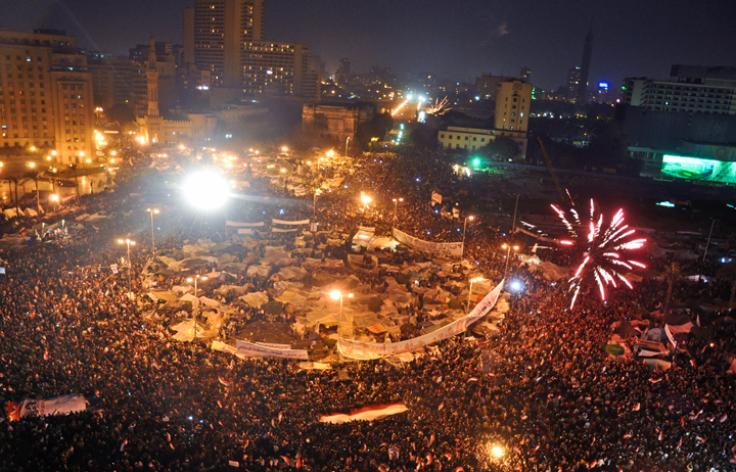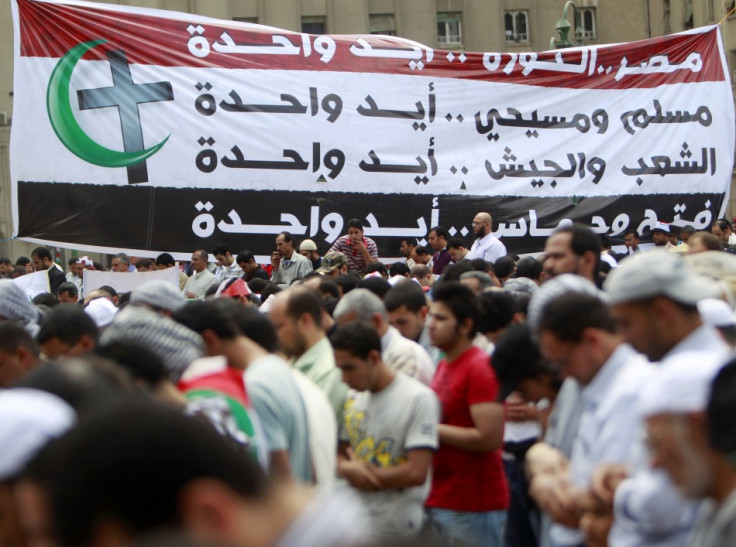Egypt: We're Still in the Revolution says Actor and Activist Khaled Abdalla

Khaled Abdalla believes he is still living through Egypt's revolution.
The activist and actor, speaking at Wednesday's first preview screening of documentary The Square in London, said the north African country has a long way to go before what was started in Tahrir Square 2011 with the overthrow of president president Mohammed Morsi by the Egyptian army reaches a conclusion.

The film by Jehane Noujaim captures the journey into the revolution of Ahmed Hassan, a charismatic example of Egypt's disenfranchised youth; Magdy Ashour, a member of the Muslim Brotherhood; and The Kite Runner actor Abdalla.
It highlights the desperation of millions of people who took to the streets demanding "bread, freedom and social justice", but depicts also the unstable and corrupt political leadership, which has changed since then but has yet to grant the rights that those protesters were prepared to die for.
What did he learn from the revolution? Abdalla said: "I have come to define the revolution in a way that's very different to how I would have defined it before. Revolution is a period in which massive social change is possible in a very short period of time.
I don't see any imminent economic improvement, any form of accountability, any imminent form of pluralism, so as long at those things don't exist, the ferment will continue
"And so long as I am not 100% certain that within six to nine months' time the same balance of power will exist, then I presume I will continue to be living in a revolution.
"You have to believe that something could happen. I come from three generations that have been fighting for political reforms in this country; that's a journey that for me started in the 1940s and I hope it continues beyond."
And what of the country now? Abdalla said: "We have a massive return of the police state, massacres, media that have been taken over, extraordinary brutality and a massive popular support for the army, which is due to antipathy towards the Muslim Brotherhood and a sense of frustration over a process that has not yet given them what they want.
"It's quite possible that things will die down, but for things to die down you need the right circumstances for the revolution to go away [...] I don't see any imminent economic improvement, any form of accountability, any imminent form of pluralism, so as long at those things don't exist, the ferment will continue."
Abdalla defined the new constitution, which was approved by a two-day referendum this week as a document that "guarantees military rule".
"While I absolutely agree that a constitution is essential, what I see essential in a constitution is the way it enshrines the mechanisms of power," he said.
"It's not about what it guarantees; it could say all sorts of good things on, for example, women's rights, which the Muslim Brothershood's constitution did and this one did, but unless you fight for that within your culture, it will never happen.
"I don't believe that in a year's time we will have the same constitution that we have today,"
© Copyright IBTimes 2024. All rights reserved.






